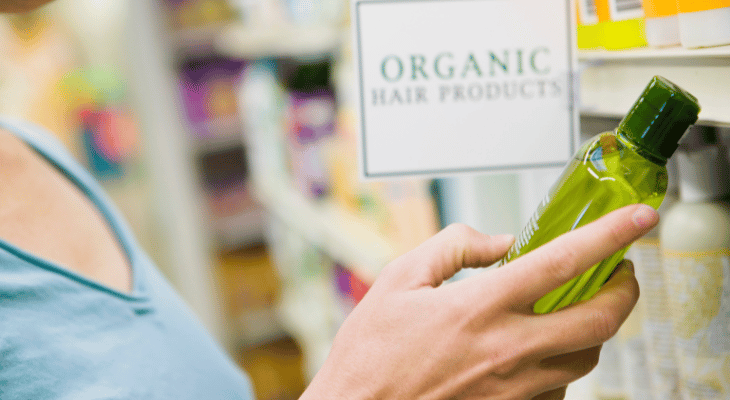Speaker Series Spotlight: Truth in Organic Marketing and Brand Integrity
With misinformation and false claims rife, there’s growing demand for transparent labelling as credibility and trust rise to the top of consumers’ agendas.
During the past two years we’ve become more educated in how to look for certifications and credentials we can trust – including in products labelled as “organic”. Regulations are evolving and new changes will make it easier for consumers to determine true organic status.
This year more than 30 speakers converged at the Naturally Good 2022 expo to discuss a wide range of topics.
One of them was Australian Organic CEO, Niki Ford, who expanded on the topic of domestic organic regulation and highlighted key stats when it comes to organic purchasing.
Joining her was Claire Maloney, CEO of The Bravery, a communications and social impact agency dedicated to positive social and environmental change, who discussed the importance of integrity in marketing. Here are some key highlights from their presentation Truth in Organic Marketing and Organic Regulation.
The meaning of the word organic
“Organic farming is a type of agriculture that seeks to produce food and fibre that has not been subject to application of synthetic chemicals (synthetic herbicides, fertilisers, pesticides), and aims to achieve an integrated production system where increased biodiversity and a functioning soil ecosystem to promote plant, animal and ultimately human health,” Ms Ford says.
Organic manufacturing explained
Organic manufacturing is the processing of organic ingredients through minimal production activities that add positively to the environment and that maintain a high level of nutritional quality, while minimising environmental pollution. Synthetic and GMO ingredients are prohibited, with approved allowed food inputs and packaging requirements specifically outlined according to a standard.
Australia – out of step with world standards
Currently Australia is misaligned with global standards and is officially the last developed nation in the world to not have an enforced domestic standard for the use of the word “organic”. It is Australian Organic Limited’s strategic priority to work with government and key regulatory bodies to deliver a fit for purpose regulatory process that is consistent with the organic export requirements.
This consistent approach to the organic industry will ensure Australia’s world-class organic standard will continue to grow market access internationally and provide Australian consumers with confidence when choosing products that claim to be organic.
Australian shopper insights and why certification marks matter
- 31% of shoppers who purchased an organic product in the past year believe they have been previously mislead by organic claims on product packaging.
- 63% of all shoppers believe that chemical free’ is the primary perceived benefit of organic products.
- Almost 9 in 10 food shoppers say they did not know there is no single legal definition for the term organic in Australia.
- 75% of organic purchases understand that certification marks are used on labels to guarantee a product is organic.
- More than half of organic shoppers check for certification marks on organic product labels.
- 39% of food shoppers said they would avoid purchasing on organic product if it did not display a certification mark (up from 35% in 2019).
Make your brand’s commitments authentic
Ms Maloney says when it comes to a brand’s social endeavours there is currently some mistrust in the market and that authenticity is paramount.
- 78% consider a brand’s social and environmental actions when making a purpose.
- 56% consider a brand’s social and environmental actions when choosing their next place of work.
- However, 86% of Australians are sceptical about the social or environmental claims brands and businesses make.
- Plus 3 in 4 can’t name a single brand or business they believe is helping improve social or environmental issues in Australia.
Believability and how people reward brands
“People reward the brands they believe are acting,” says Ms Maloney. “If you want to be believed, rethinking your product and packaging is a great place to begin. Communications are important, but strong actions and commitments need to come first.”
Becoming a market leader – take real action
“How can you become a market leader is to act first and think about ads later. Continue to think big and repeat the process. When it comes to communications, people believe what they see on product and in-store above all else so always bear that in mind.”
-
Enquire!
- Book a stand
